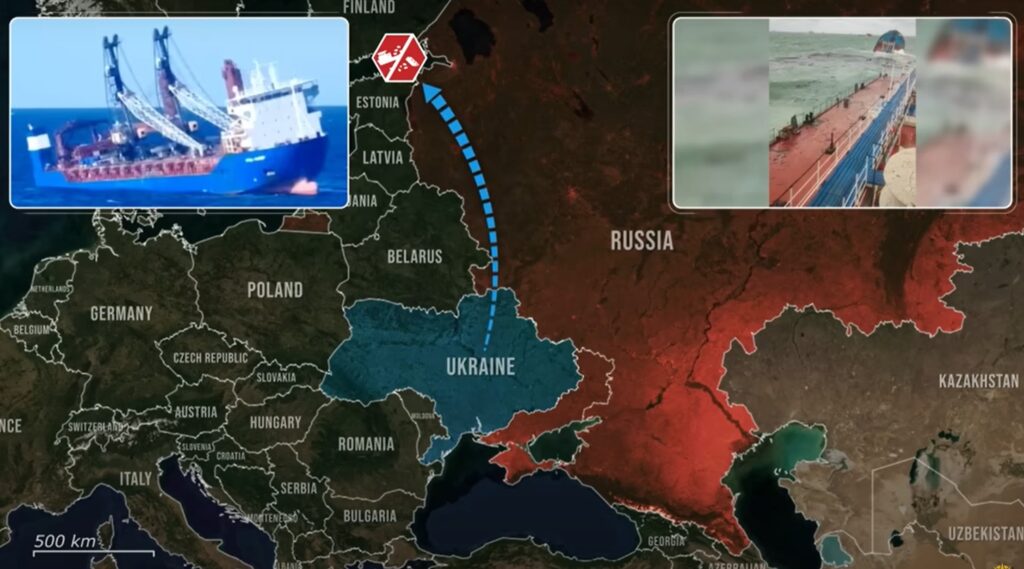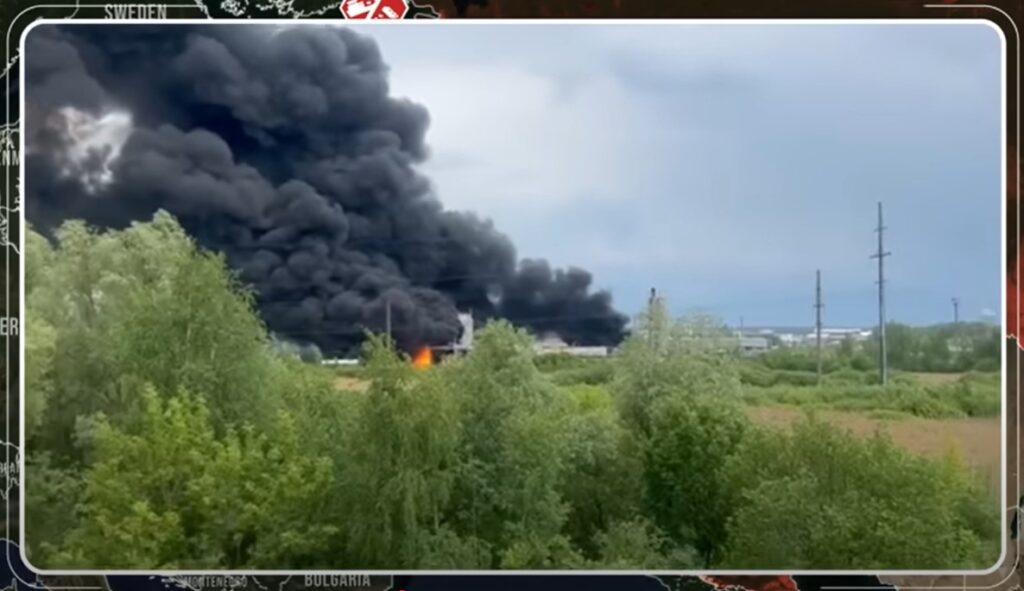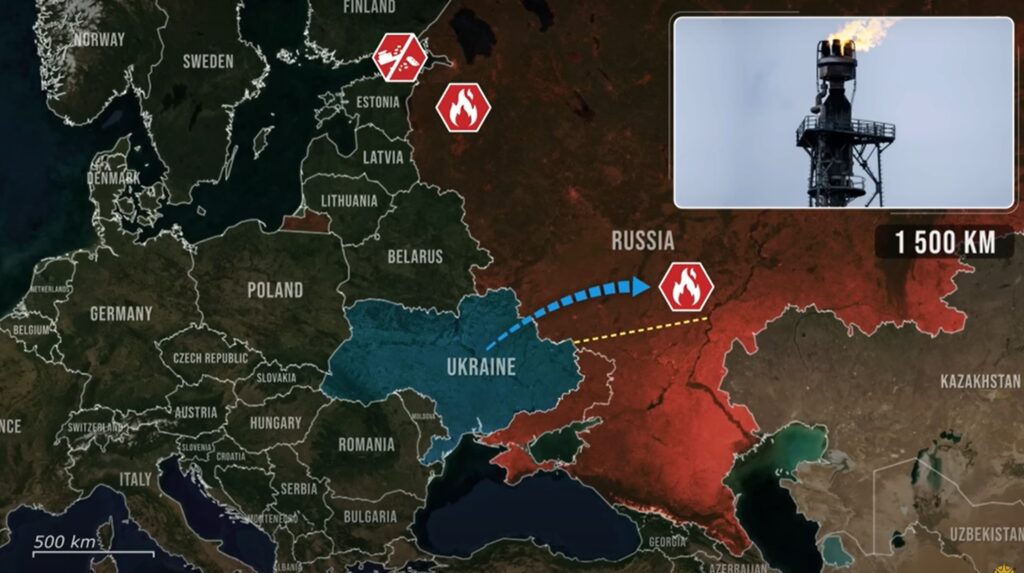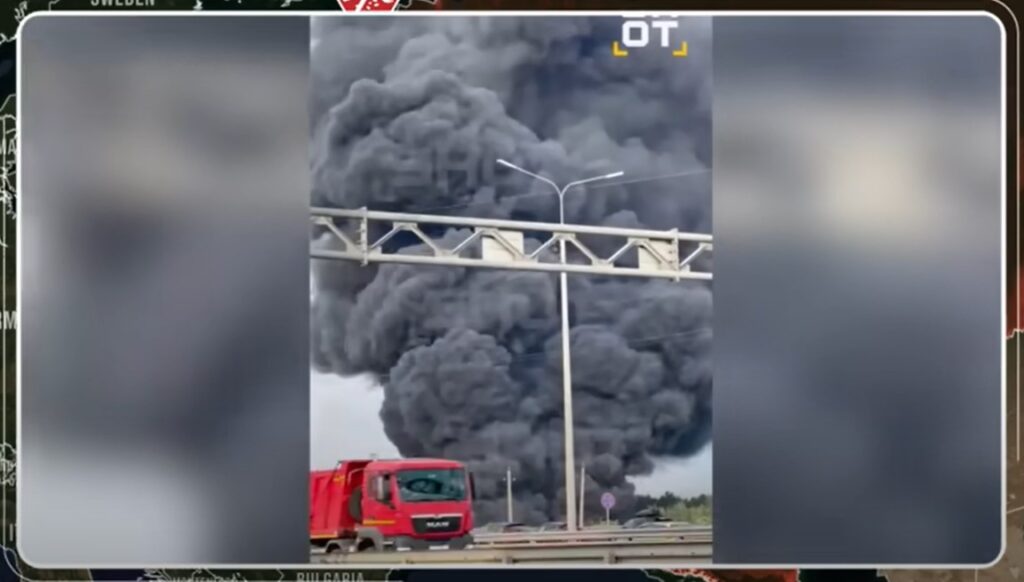Today, there are a lot of updates from the Russian Federation. Here, Ukraine has not only expanded its efforts to directly target the Russian Shadow fleet on the sea, but has wreaked havoc on each point in the Russian production line, exporting millions of tons of oil every month. Burning ships, depots, oil wells, and striking refineries in the most technically critical parts, generating revenue for the Russian war economy has never become more difficult.
Explosions rock the Eco Wizard in Russian port waters
Recently, a Russian vessel named Eco Wizard sank in the Russian port of Ust-Luga near Saint Petersburg. Two subsequent explosions went off in the engine room, damaging the ship’s hull and causing water to enter rapidly, and tilting the ship to port side.
Notably, the ship docked in the Russian port after arriving from Belgium, and is reportedly part of Russia’s shadow fleet, transporting oil, chemicals, and other cargo while bypassing Western sanctions. While this ship in particular transports liquid Ammonia, the blast happened in port while loading was still being conducted, and Russian authorities report only a small spill of ammonia which was quickly cleaned up by port authorities. The ship itself however, will remain out of commission till it can be towed into a dry dock, pumped dry, and repaired.

Ukraine suspected in string of shadow fleet sabotage incidents
This has been the sixth instance of suspicious explosions rocking the Russian shadow fleet, with many analysts speculating Ukraine may be behind these targeted strikes. It has to be noted that none of the suspicious instances surrounding the Russian shadow oil fleet have resulted in any environmental damage; with the only such cases of ecological damage being a result of shadow fleet vessels running aground, crashing into each other at port, or sinking during a storm.

Deep strikes: Ukraine hits Russia’s refineries in Nizhny Novgorod and Saratov
However, Ukraine not only targets Russian shadow fleet exports at port and at sea, but also continues to destroy Russian oil refining, storage, and production facilities on the ground. Ukrainians recently targeted the fourth-largest Russian oil refinery in Nizhny Novgorod, producing over 5% of Russia’s total refined output. While official statements only note one hit on a bitumen tank, eyewitnesses claim a massive inferno engulfing the Lukoil refinery.

Drones cross 1,500 km to penetrate Russian defenses
Next, Ukrainians targeted the Russian Lukoil refinery in Saratov, striking the facility’s technological workshops, housing the last stage in the refining process where crude oil is processed and converted into refined petrochemical products. Notably, the Ukrainian drones crossed over 1,500 kilometers of Russian territory while en route to the Russian plant.
This both underscores how extensive Ukraine’s range abilities have become as well as the depletion of Russian air defenses, unable to detect or intercept Ukrainian drones even during an estimated flight time of 10 hours.

Oil depots burn near Moscow, Engels, and Bryansk
Russian oil depots were next, with Ukrainian drones targeting a Russian fuel depot on the outskirts of the city of Moscow. As black smoke rose above the Russian capital, firefighters struggled to put out the flames, with the fire not stopping till all the oil was burned out.
However, the following strike on the Engels oil depot burned for far longer. Ukrainian drones hit the Engels fuel depot for the third time since 2025, igniting a fire that burned for three consecutive days. As a finishing blow on depots, Ukrainian Bober (Beaver) drones devastated the massive Russian oil depot in Bryansk, just across the border with Ukraine.

Ukraine hits oil wells near Grozny in final phase of energy disruption
Lastly, Ukraine hit Russian oil production at its source, striking Russian oil wells near Grozny in Chechnya, causing a large fire to break out and emergency services to rush toward the scene.

Russia’s war economy falters under pressure
Overall, Ukraine’s campaign targeting Russian oil revenue is disrupting Russian streams at every possible point in the production line. Often, these facilities have a dual use, producing fuel and oil for exports through the Russian shadow fleet, as well as providing fuel and lubricants to Russian military aviation and ground forces, without which the Russian army cannot function. With even these crucial Russian assets becoming increasingly unprotected by sufficient air defense systems, the number of Ukrainian strikes promises to only grow further as time progresses.
As the campaign has now even expanded to targeting the Russian shadow fleet itself, Ukraine is taking matters into its own hands, ensuring Russia continues to suffer both economically and militarily. As the economic cost of the war grows, this will only further widen the $50 billion Russian budget deficit, which is already projected to grow larger than $100 billion before the year ends.
In our regular frontline report, we pair up with the military blogger Reporting from Ukraine to keep you informed about what is happening on the battlefield in the Russo-Ukrainian war.




